The Courier has launched our A Voice for Victims campaign to reform the parole system in Scotland so victims and their families are put first.
As part of the campaign we also want to bring greater transparency to how the Parole Board for Scotland comes to decisions and how the hearings work.
Because parole hearings are held in private and there is little input from victims or families, they are perhaps the least understood part of our justice system.
Parole is a part of our justice system that allows offenders to be released on licence under the supervision of a social worker before their sentence is finished.
The decision of whether or not to release prisoners is made by the Parole Board for Scotland.
Who sits on the Parole Board?
The Parole Board members are appointed by Scottish Ministers but it operates independently from the Scottish Government.
The current chairman of the board is John Watt, a qualified solicitor who worked for 35 years in the Crown Office and Procurator Fiscal Service.
There are also currently 25 appointed general members of the board, made up of – among other professions – former and current social workers, police officers, civil servants, health professionals and prison officers.
There are also 21 appointed legal member of the board who have or had careers within the legal profession.
Who is eligible for parole and when?
Prisoners who have been sentenced to more than four years in prison are entitled by law to be considered for parole once they have served half their sentence.
If the board refuses parole, most offenders will be reconsidered for parole no more than 12 months later, every year, until they are released.
It is under this system that Tasmin Glass is eligible for parole next week.
Those given life sentences are treated slightly differently – they are told at the time of sentencing the minimum period they must spend in jail before being considered for parole.
They will then have their case considered by the board “as soon as possible” after that date.
If not released at the first review, they will have a further review within the two years.
If refused again, subsequent reviews will be set by the parole board.
It is under this system under which Robbie McIntosh will be considered for parole again in August.
How does the parole board decide?
The board will consider a dossier consisting a number of reports.
This includes findings by the trial judge, previous convictions, reports from prison staff, prison and community social workers and counsellors.
The board will also take into account a prisoner’s family background and their plans once released.
Victims or their families are also invited to send a written representation to the board.
The offender can also make written representations about the reports in the dossier.
Can the public attend parole hearings?
Unlike trials and court proceedings, parole hearings in Scotland are held in private.
In cases where the offender is serving a life sentence, extended sentence or lifelong restriction, a victim can request to attend the hearing.
This request is considered solely by the chair of the board, who can refuse the request.
After notifying the victim of the outcome, the board will publish an anonymised summary of their decision.
An example of these anonymised decisions can be seen below, published in November 2023.
To read more on The Courier’s A Voice for Victims campaign click here.
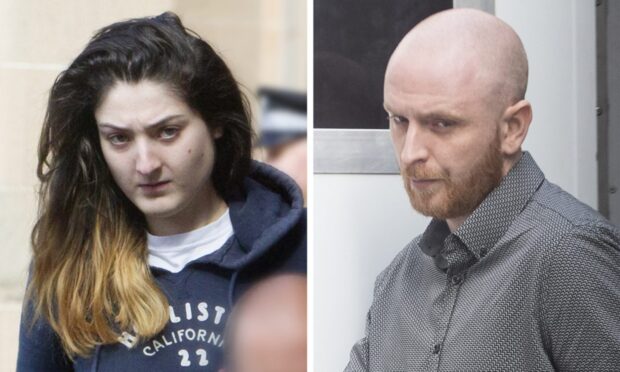
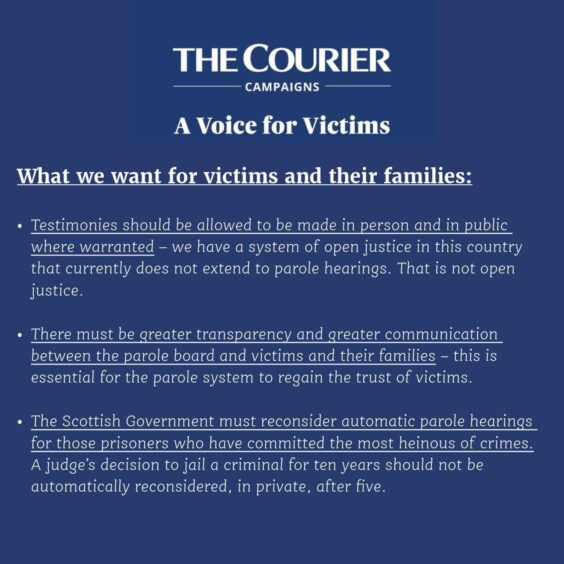
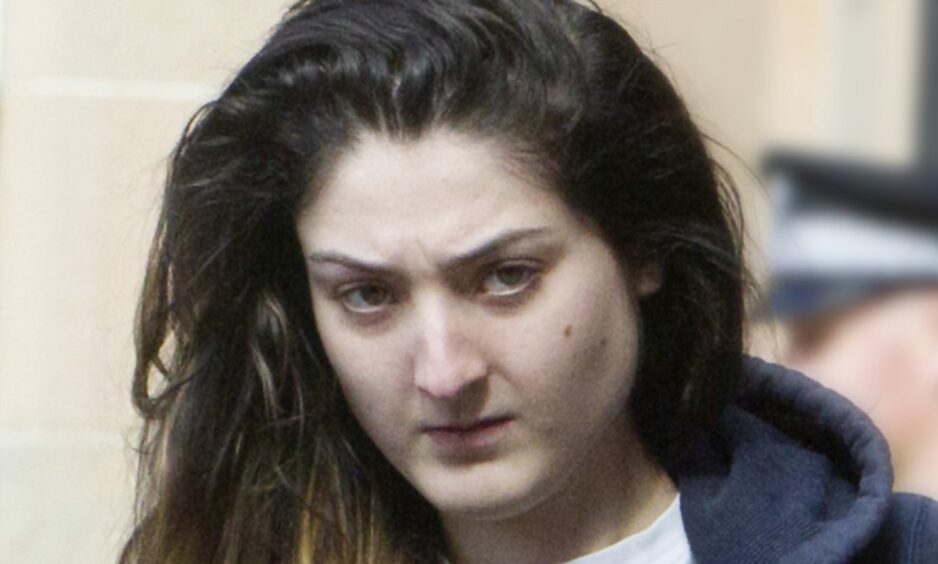
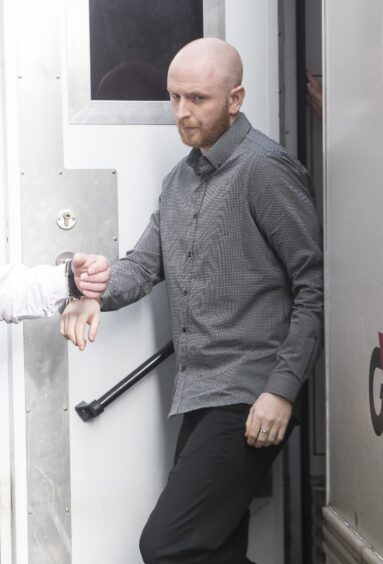
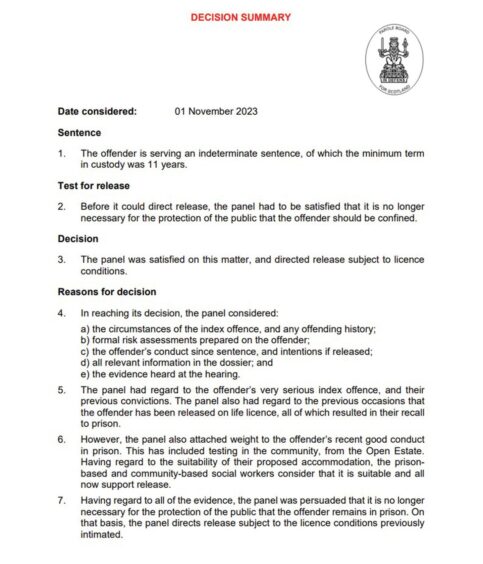


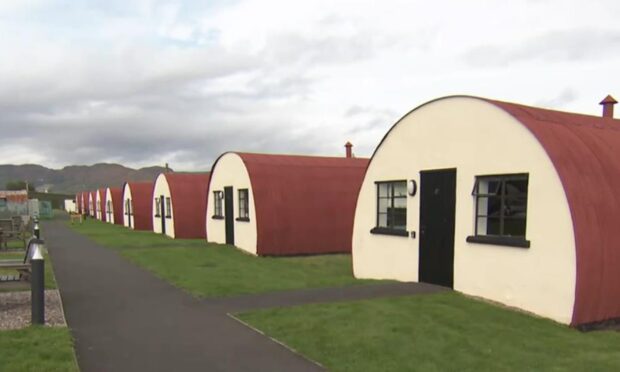
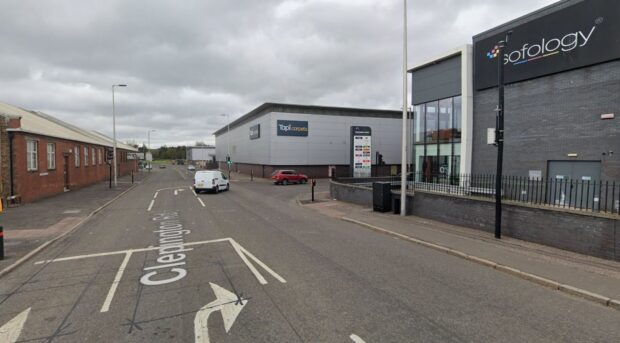


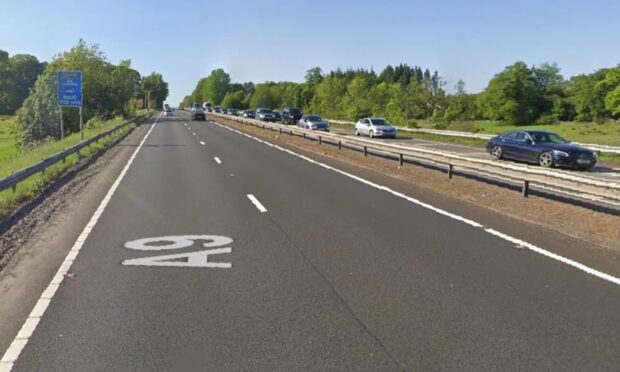

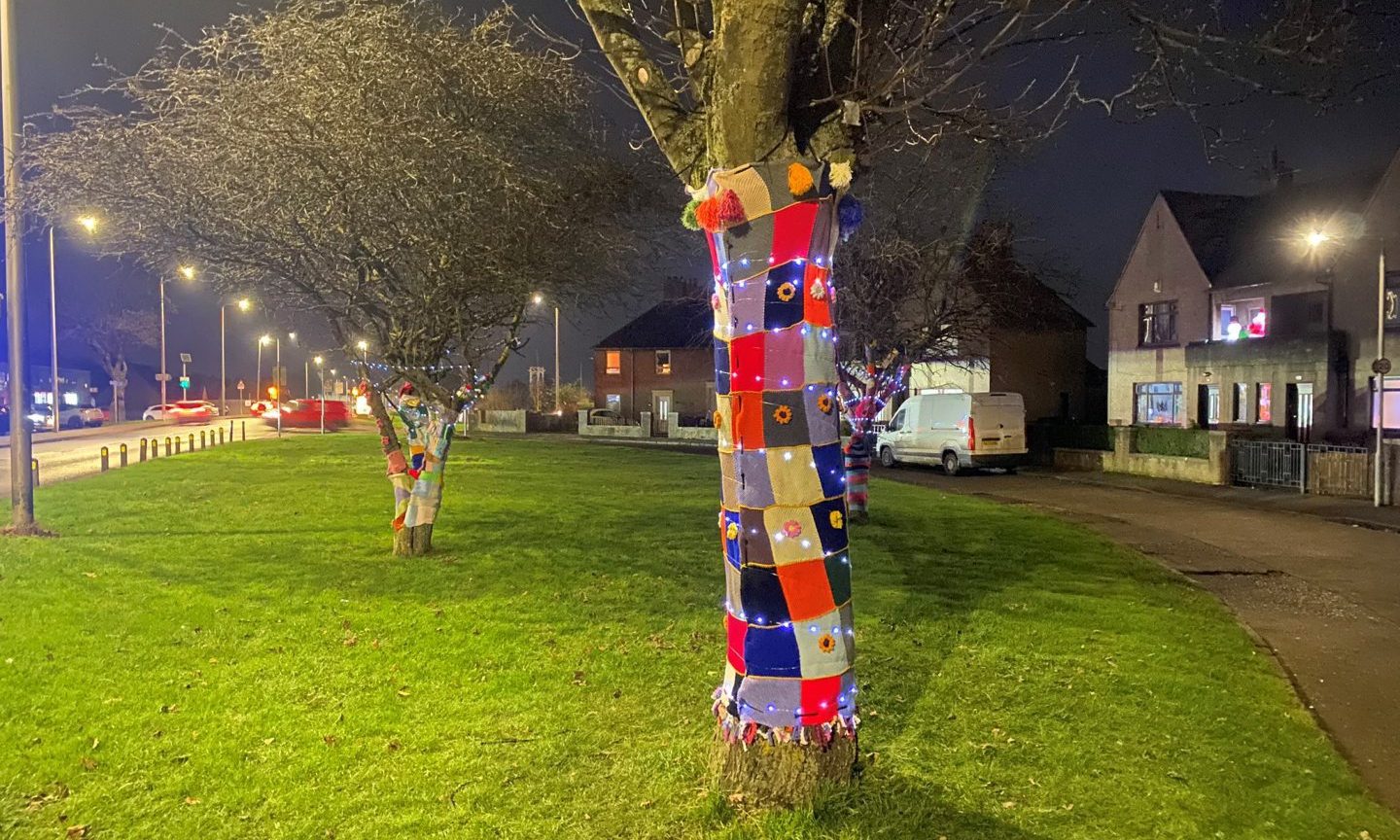

Conversation